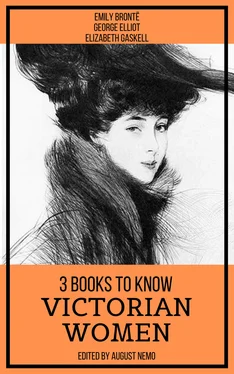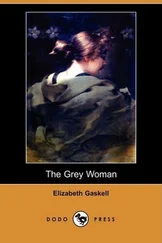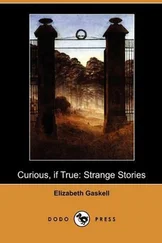Now, Mr. Earnshaw did not understand jokes from his children: he had always been strict and grave with them; and Catherine, on her part, had no idea why her father should be crosser and less patient in his ailing condition, than he was in his prime. His peevish reproofs awakened in her a naughty delight to provoke him: she was never so happy as when we were all scolding her at once, and she defying us with her bold, saucy look, and her ready words; turning Joseph’s religious curses into ridicule, baiting me, and doing just what her father hated most—showing how her pretended insolence, which he thought real, had more power over Heathcliff than his kindness: how the boy would do her bidding in anything, and his only when it suited his own inclination. After behaving as badly as possibly all day, she sometimes came fondling to make it up at night. “Nay, Cathy,” the old man would say, “I cannot love thee; thou’rt worse than thy brother. Go say thy prayers, child, and ask God’s pardon. I doubt thy mother and I must rue that we ever reared thee!” That made her cry, at first: and then being repulsed continually hardened her, and she laughed if I told her to say she was sorry for her faults, and beg to be forgiven.
But the hour came, at last, that ended Mr. Earnshaw’s troubles on earth. He died quietly in his chair one October evening, seated by the fireside. A high wind blustered round the house, and roared in the chimney: it sounded wild and stormy, yet it was not cold, and we were all together—I, a little removed from the hearth, busy at my knitting, and Joseph reading his Bible near the table (for the servants generally sat in the house then, after their work was done). Miss Cathy had been sick, and that made her still; she leant against her father’s knee, and Heathcliff was lying on the floor with his head in her lap. I remember the master, before he fell into a doze, stroking her bonny hair—It pleased him rarely to see her gentle—and saying —“Why canst thou not always be a good lass, Cathy?” And she turned her face up to his, and laughed, and answered, “Why cannot you always be a good man, father?” But as soon as she saw him vexed again, she kissed his hand, and said she would sing him to sleep. She began singing very low, till his fingers dropped from hers, and his head sank on his breast. Then I told her to hush, and not stir, for fear she should wake him. We all kept as mute as mice a full half-hour, and should have done so longer, only Joseph, having finished his chapter, got up and said that he must rouse the master for prayers and bed. He stepped forward, and called him by name, and touched his shoulder; but he would not move, so he took the candle and looked at him. I thought there was something wrong as he set down the light; and seizing the children each by an arm, whispered them to “frame upstairs, and make little din—they might pray alone that evening—he had summut to do.”
“I shall bid father good-night first,” said Catherine, putting her arms round his neck, before we could hinder her. The poor thing discovered her loss directly—she screamed out —“Oh, he’s dead, Heacthcliff! he’s dead!” And they both set up a heart-breaking cry.
I joined my wail to theirs, loud and bitter; but joseph asked what we could be thinking of to roar in that way over a saint in heaven. He told me to put on my cloak and run to Gimmerton for the doctor and the parson. I could not guess the use that either would be of, then. However, I went, through wind and rain, and brought one, the doctor, back with me; the other said he would come in the morning. Leaving Joseph to explain matters; I ran to the children’s room: their door was ajar, I saw they had never laid down, though it was past midnight; but they were calmer, and did not need me to console them. The little souls were comforting each other with better thoughts than I could have hit on: no parson in the world ever pictured heaven so beautifully as they did, in their innocent talk: and, while I sobbed and listened, I could not help wishing we were all there safe together.
––––––––
MR. HINDLEY came home to the funeral; and—a thing that amazed us, and set the neighbours gossiping right and left—he brought a wife with him. What she was, and where she was born, he never informed us: probably she had neither money nor name to recommend her, or he would scarcely have kept the union from his father.
She was not one that would have disturbed the house much on her own account. Every object she saw, the moment she crossed the threshold, appeared to delight her; and every circumstance that took place about her: except the preparing for the burial, and the presence of the mourners. I thought she was half silly, from her behaviour while that went on: she ran into her chamber, and made me come with her, though I should have been dressing the children; and there she sat shivering and clasping her hands, and asking repeatedly: “Are they gone yet?” Then she began describing with hysterical emotion the effect it produced on her to see black and started, and trembled, and, at last, fell aweeping—and when I asked what was the matter? answered, she didn’t know; but she felt so afraid of dying! I imagined her as little likely to die as myself. She was rather thin, but young, and fresh-complexioned, and her eyes sparkled as bright as diamonds. I did remark, to be sure, that mounting the stairs made her breathe very quick: that the least sudden noise set her all in a quiver, and that she coughed troublesomely sometimes: but I knew nothing of what these symptoms portended, and had no impulse to sympathize with her. We don’t in general take to foreigners here, Mr. Lockwood, unless they take to us first.
Young Earnshaw was altered considerably in the three years of his absence. He had grown sparer, and lost his colour, and spoke and dressed quite differently; and, on the very day of his return, he told Joseph and me we must thenceforth quarter ourselves in the back-kitchen, and leave the house for him. Indeed, he would have carpeted and papered a small spare room for a parlour; but his wife expressed such pleasure at the white floor and huge glowing fire-place, at the pewter dishes and delftcase, and dog-kennel, and the wide space there was to move about in where they usually sat, that he thought it unnecessary to her comfort, and so dropped the intention.
She expressed pleasure, too, at finding a sister among her new acquaintances; and she prattled to Catherine, and kissed her, and ran about with her, and gave her quantities of presents, at the beginning. Her affection tired very soon, however, and when she grew peevish, Hindley became tyrannical. A few words from her, evincing a dislike to Heathcliff, were enough to rouse in him all his old hatred of the boy. He drove him from their company to the servants, deprived him of the instructions of the curate, and insisted that he should labour out of doors instead; compelling him to do so as hard as any other hand on the farm.
Heathcliff bore his degradation pretty well at first, because Cathy taught him what she learnt, and worked or played with him in the fields. They both promised fair to grow up as rude as savages; the young master being entirely negligent how they behaved, and what they did, so they kept clear of him. He would not even have seen after their going to church on Sundays, only joseph and the curate reprimanded his carelessness when they absented themselves; and that reminded him to order Heathcliff a flogging, and Catherine a fast from dinner or supper. But it was one of their chief amusements to run away to the moors in the morning and remain there all day, and the after punishment grew a mere thing to laugh at. The curate might set as many chapters as he pleased for Catherine to get by heart, and Joseph might thrash Heathcliff till his arm ached; they forgot everything the minute they were together again: at least the minute they had contrived some naughty plan of revenge; and many a time I’ve cried to myself to watch them growing more reckless daily, and I not daring to speak a syllable, for fear of losing the small power I still retained over the unfriended creatures. One Sunday evening, it chanced that they were banished from the sittingroom, for making a noise, or a light offence of the kind; and when I went to call them to supper, I could discover them nowhere. We searched the house, above and below, and the yard and stables; they were invisible: and at last, Hindley in a passion told us to bolt the doors, and swore nobody should let them in that night. The household went to bed; and I, too anxious to lie down, opened my lattice and put my head out to hearken, though it rained: determined to admit them in spite of the prohibition, should they return. In a while, I distinguished steps coming up the road, and the light of a lantern glimmered through the gate. I threw a shawl over my head and ran to prevent them from waking Mr. Earnshaw by knocking. There was Heathcliff by himself: it gave me a start to see him alone.
Читать дальше












